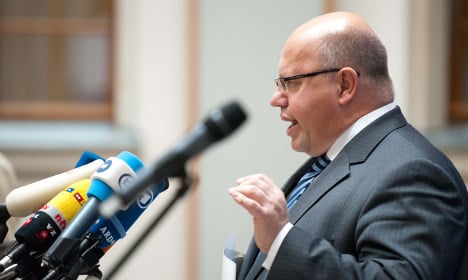Minister Altmaier said on Thursday that something must be done to take the financial burden off German consumers, who will be expected to pay a higher levy on their electricity bills from next year, because of the transition to renewables. To do this, Altmaier suggested a complete overhaul of the Renewable Energy Sources Act (EEG).
Furthermore, said the minister, the current rate of growth in wind energy and biogas power plants had to be made “constant and reliable” and suggested placing limits on the number of plants allowed to be built in certain areas, similar to those placed on solar power.
According to Altmaier, in some places local authorities are planning new wind and biogas facilities that will provide 60 percent more energy than what is needed.
Although Altmaier promised to stick to the target of getting 80 percent of Germany’s energy from renewable sources by 2050, opposition politicians and some states have accused the minister of putting a “brake” on the government’s ambitious plan.
Without going into detail, the minister suggested tighter controls be put in place to regulate how many and which type of facilities can be built in which areas. Renewable energy facilities should also be planned to coincide with areas where the grid is capable of taking up the electricity.
The most controversial part of this, wrote Die Welt daily newspaper on Friday, is likely to be whether the states are willing to give up their own renewable energy targets, not to mention the revenue from taxes paid on new wind parks and biogas plants.
On Friday, several opposition politicians and representatives from Schleswig-Holstein – which is currently planning a large scale extension of its wind capacity – criticised the suggested reforms as sending a “wrong signal.”
The head of the Social Democratic Party (SPD) faction Ulrich Kelber accused the government of serving lobbyists in the energy industry, whereas Left party chairwoman Katja Kipping described Altmaier’s suggestions as “falling at the feet of the energy companies.”
Even the CDU’s governing coalition partner the liberal Free Democrats (FDP) criticised the lack of concrete plans for reducing energy prices for consumers, an issue which the FDP says the CDU does not take seriously enough.
In recent weeks criticism has been mounting against government energy policy after it was revealed that the current rules exempt bigger firms from paying the renewable energy levy – at the cost of small businesses and consumers.
Industry is getting “discounts that everyone else has to shoulder,” head of Friends of the Earth Germany (BUND) Hubert Weiger told the paper.
The Local/DAPD/jlb




 Please whitelist us to continue reading.
Please whitelist us to continue reading.
Member comments